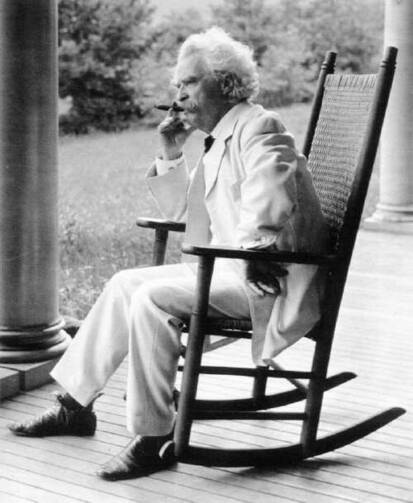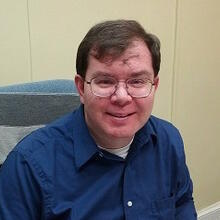When I saw the headline in The Washington Post, I had to sit down.
In fact, I was sitting down.
The article that claimed my immediate attention was, truthfully—and I kid you not—actually was about sitting down: "Sitting for long periods doesn’t make death more imminent, study suggests” (Oct. 14).
Well, you could imagine how I felt when I read that story: I almost died. It was such a huge relief to know that I wouldn’t die from sitting down. I have often imagined dying from a lot of things, but sitting wasn’t one of them. (Boredom would be more like it.) And when you’re an editor, sitting is one of those onerous tasks you have to perform in accordance with your awesome responsibilities and duties with which you are tasked with: proofreading, fact-checking, forming critiques about somebody else’s proofreading, re-re-reading the proofreading and the fact-checking the fact-checking while all the while critiquing more critiques about somebody else’s critiques. Such work demands having a sturdy posterior able to withstand the rigors of fastidious thought amid the occasional thunderous flashes of brilliance which are part and parcel of the writing and editing life. (No ifs, ands, or buts about it!)
I just couldn’t believe when this story first came out about sitting and premature death due to hours untold hours of sitting; it just didn’t make any sense. After all, sitting is something we do; it is hardwired in our DNA. Sitting is as natural as can be. Even dogs do it—and do we ever hear about premature dog deaths from sitting? No. (And I bet you, if they—dogs—ever comprehended such a thing, they wouldn’t wag their tails over that one, and they certainly wouldn’t lick you in the face, either. They would—most likely—raise a leg in protest and give the canine version of the banshee’s howl.) They’re more likely to get killed trying to fetch a bone or something in the middle of the street during rush hour, never mind passing away from idling time at friendly human feet.
When the original studies came out, it provoked an outcry of fear and dismay, especially from the expert practitioners of sitting: what were “sitters” to do? If the veracity of that report was proven to be really true, why, gossipers would be run out of town—they wouldn’t have a tush to sit on. Incidentally, just the other day, when I was watching the nightly news, there was a report that some elementary school out west was undergoing a trial project of having students use “stand-up” desks during school hours, instead of using the traditional desk and chair. I was aghast when I saw that report; school nowadays is hard enough when the youngsters have to cram so much learning into their young noggins on any given day, and now they have to do it standing up, too? I thought capital punishment was abolished most everywhere in this day and age. Back in my school days, I needed to sit down when trying to figure out those sorrowful mysteries otherwise known as mathematics.
To have kids standing up at desks from 8:30AM to 3PM seems to me the ultimate in childhood punishment, right up there with having to eat things like spinach, cauliflower, liver and onions, and pureed whatever every day at the dinner hour. And there is a push in the workplace to have such contraptions, claiming that standing improves health and productivity; on the average, they say, working by standing burns up to 310 calories. To that, I say: balderdash! I burn up 310 calories just thinking about what I’m going to write for the next blog, never mind standing up for it!
It so happens that this startling bit of information (about sitting, that is) was the result of English researchers collating their findings in the latest edition of the International Journal of Epidemiology. After studying the phenomenon for some 16 years and observing the health of some 5,000 plus people, and factoring in several factors (such as work, play, diet, health and so on) the researchers found that “the overall mortality risk for these participants wasn’t influenced by how long they sat or by the kind of sitting…” The study’s author, Melvyn Hillsdon, of the University of Exeter, said that “any stationary posture where energy expenditure is low may be detrimental to health, be it sitting or standing.” (This study had to be flawed, from the get-go: the researchers must have been seated in front of the computer to write it all up, right? And as far as I know, none of them died in the process…)
I could spend hours just expending tons of mental energy just thinking about such a concept: the alleged “dangers” of sitting. Where would we be without the virtue that is sitting? Great things can result from sitting (at least, most of the time). It is through sitting that great thoughts can be brought forth and new concepts created. We would have no great literature or any great works of art if it wasn’t through the act of sitting (at least, some of the time). When our imaginations are on fire, we may get up and prance around the room in exultation over our newfound visions and ideas (much of the time) but the fact remains they wouldn’t have occurred if we hadn’t sat down first.
Just the same, I will subscribe to the opinions of some who had produced their best works as a result of sitting down: “My perfect day is sitting in a room with some blank paper. That’s heaven. That’s gold and anything else is just a waste of time” (Cormac McCarthy). “I do most of my work sitting down; that’s when I shine” (Robert Benchley). and, finally: “One of my biggest thrills for me is sitting down with a guitar or a piano and just out of nowhere trying to make a song happen” (Paul McCartney).
There’s much to be said for sitting down. If it was properly tried, it could bring about world peace. (Maybe, maybe not—but at least people wouldn’t be up and about making mischief.) But it can do wonders for the creative properties. Out of sitting down can come mellifluous sentences, graceful lyrics and mesmerizing works of artistic beauty. As Gustave Flaubert once said: “What an elder sees sitting; the young can’t see standing.”
Even Mark Twain had something to say about this; though he didn’t specifically mention sitting down, he was often portrayed in photographs as being seated, dressed in his famous white suit, twirling his ever present cigar, ruminating on the things of the day. He speculated about the need for “rest” and how we Americans could profit from its restorative properties. He wrote about it, in his book, The Innocents Abroad, and it’s worth taking some time thinking about the matter. (Keep in mind, too, that this is the same man who once said that whenever he had the urge to exercise, he would quickly lie down until it passed away.)
Mark Twain said: “In America, we hurry—which is well, but when the day’s work is done, we go on thinking of losses and gains, we plan for the morrow, we even carry our business cares to bed with us, and toss and worry over them when we ought to be restoring our racked bodies and brains with sleep. We burn up our energies with these excitements, and either die early or drop into a lean and mean old age at a time of life which they call a man’s prime in Europe.”
Twain continued: “When an acre of ground has produced long and well, we let it lie fallow and rest for a season; we take no man clear across the continent in the same coach he started in—the coach is stabled somewhere on the plains and its heated machinery allowed to cool for a few days; when a razor has seen long service and refuses to hold an edge, the barber lays it away for a few weeks, and the edge comes back of its own accord. We bestow thoughtful care upon inanimate objects, but none upon ourselves. What a robust people, what a nation of thinkers we might be, if we would only lay ourselves on the shelf occasionally and renew our edges!”
I agree with the august sentiments of Messrs. McCarthy, Benchley, McCartney, Flaubert and Twain. Sitting (and in Twain’s case, resting) has value. And so has ideas and imagination and dreams—and all because of the simple and natural act of sitting down. As Mr. Twain said, we need to “renew our edges”—even if we have to sit down to do it. Whenever they come up with a study about restoring lost sleep—or better yet—how to have better sleep, then I’ll really pay attention. But until then…
There’s much to be said for the actual act of sitting down. And I must admit it: for myself, if not for others—when it comes right down to it—I’m basically just a standup guy when it comes to sitting down. And I wouldn’t have it any other way.








